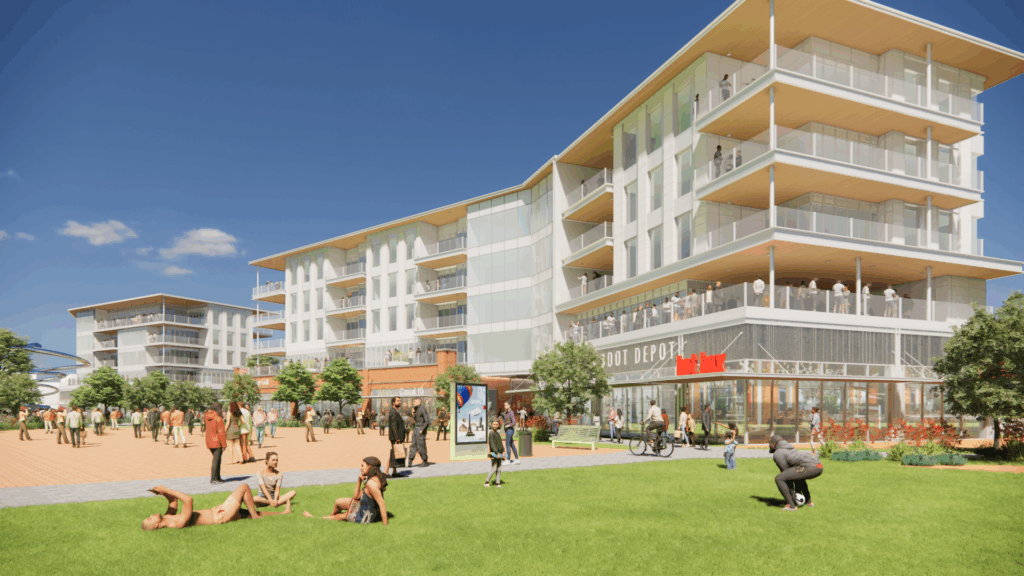Des Moines prepares for local option sales tax vote

KENT DARR Dec 13, 2018 | 9:02 pm
2 min read time
525 wordsAll Latest News, Business Record Insider, Economic Development, Government Policy and Law, Real Estate and DevelopmentThe city of Des Moines is prepping to place the local option sales tax before its voters next year, with the City Council set to vote Monday on ballot language and a set of spending guidelines if the extra penny is approved.
A change in state law last year allowed residents to cast a vote that will stand for just their city and not others with shared borders in Polk County. Prior to the legislation, communities with contiguous borders voted as one block.
The Legislature acted after voters in Des Moines, West Des Moines and Windsor Heights approved the local option sales tax during a countywide vote March 6, but saw the issue go down to defeat by 227 votes after results were tallied for all nine communities in Polk County with contiguous borders. In Des Moines, the measure was approved by 54 percent of voters.
For Des Moines, that defeat meant that roughly $37 million in sales tax revenue could not be captured and used for a range of city needs. It also resulted in an increase of 20 cents per $1,000 of taxable value on property taxes.
For a vote that would be held March 5, residents have been asked to list their priorities for how the revenue, again estimated at $37 million, would be used if the issue passes. State law requires that 50 percent of the revenues go toward property tax relief. In Des Moines, that would mean a reduction of 60 cents per $1,000 of taxable valuation — the 20 cents added last year plus another 40 cents. If the issue fails, property taxes could increase a total of $1.50 per $1,000 valuation over the next six to seven years, City Manager Scott Sanders said.
The City Council also is voting Monday on an “expenditure policy” that mirrors how the city planned to use the additional revenues had the tax passed earlier this year. There are a couple of additions. Surveys found that residents want to accelerate the completion of stormwater improvements to alleviate future flooding, additional support for mobile crisis services directed toward young people, and a return to having city libraries open six days a week. In a budget-cutting move several years ago, libraries were limited to five days of operation.
Other priorities include stepping up the timetable on street improvements under the city’s five-year street improvement maintenance plan. Big projects include Fleur Drive, Pennsylvania Avenue and East Court Avenue. Neighborhood revitalization, including a Blitz on Blight effort and an expansion of requirements for rental housing along with stronger enforcement are key elements of the spending policy. In addition, the city would improve fire stations, retain 13 firefighters positions that were filled under a federal grant that will expire, modernize public safety equipment and expand training.
The vote is key to prop up revenues in Des Moines, a city where property assessments and the revenues they generate have not kept pace with inflationary increases and expenses. Sanders noted that the city cannot “cut our way to prosperity” as it has attempted to do in the past.
“We have to have a better plan that just cutting,” he said.
A change in state law last year allowed residents to cast a vote that will stand for just their city and not others with shared borders in Polk County. Prior to the legislation, communities with contiguous borders voted as one block.
The Legislature acted after voters in Des Moines, West Des Moines and Windsor Heights approved the local option sales tax during a countywide vote March 6, but saw the issue go down to defeat by 227 votes after results were tallied for all nine communities in Polk County with contiguous borders. In Des Moines, the measure was approved by 54 percent of voters.
For Des Moines, that defeat meant that roughly $37 million in sales tax revenue could not be captured and used for a range of city needs. It also resulted in an increase of 20 cents per $1,000 of taxable value on property taxes.
For a vote that would be held March 5, residents have been asked to list their priorities for how the revenue, again estimated at $37 million, would be used if the issue passes. State law requires that 50 percent of the revenues go toward property tax relief. In Des Moines, that would mean a reduction of 60 cents per $1,000 of taxable valuation — the 20 cents added last year plus another 40 cents. If the issue fails, property taxes could increase a total of $1.50 per $1,000 valuation over the next six to seven years, City Manager Scott Sanders said.
The City Council also is voting Monday on an “expenditure policy” that mirrors how the city planned to use the additional revenues had the tax passed earlier this year. There are a couple of additions. Surveys found that residents want to accelerate the completion of stormwater improvements to alleviate future flooding, additional support for mobile crisis services directed toward young people, and a return to having city libraries open six days a week. In a budget-cutting move several years ago, libraries were limited to five days of operation.
Other priorities include stepping up the timetable on street improvements under the city’s five-year street improvement maintenance plan. Big projects include Fleur Drive, Pennsylvania Avenue and East Court Avenue. Neighborhood revitalization, including a Blitz on Blight effort and an expansion of requirements for rental housing along with stronger enforcement are key elements of the spending policy. In addition, the city would improve fire stations, retain 13 firefighters positions that were filled under a federal grant that will expire, modernize public safety equipment and expand training.
The vote is key to prop up revenues in Des Moines, a city where property assessments and the revenues they generate have not kept pace with inflationary increases and expenses. Sanders noted that the city cannot “cut our way to prosperity” as it has attempted to do in the past.
“We have to have a better plan that just cutting,” he said.










